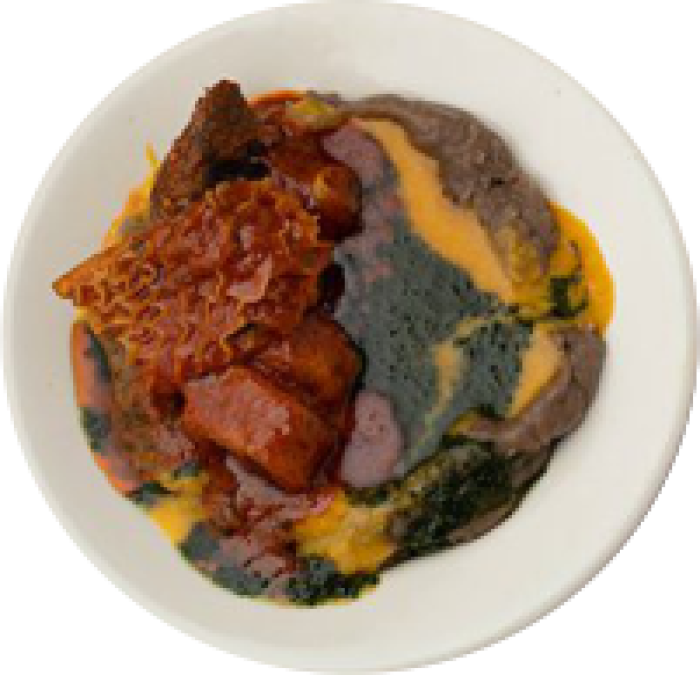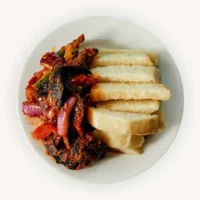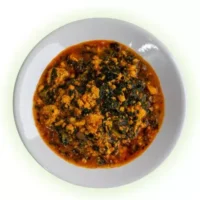Abula is a traditional Nigerian soup that originates from the Yoruba ethnic group in the southwestern region of Nigeria. This unique dish is a combination of three distinct components: Amala (yam flour), Gbegiri (bean soup), and Ewedu (jute leaves soup). The harmonious blend of these three elements creates a delicious and nutritious meal that is popular in Nigeria, particularly among the Yoruba people.
What makes up Abula
Amala (Yam Flour)
Amala is a dark brown or blackish swallow made from yam flour. The yam flour is prepared by grinding dried yams into a fine powder, which is then cooked to form a smooth, stretchy, and elastic dough. The dark color of Amala is achieved through the prolonged cooking process, which involves stirring and turning the mixture until it reaches the desired consistency. Amala is typically served in small portions and is known for its unique texture and ability to complement the other components of Abula.
Gbegiri (Bean Soup)
Gbegiri is a flavorful soup made from peeled and blended brown beans. The beans are usually cooked until soft and then pureed into a smooth paste. Palm oil, onions, and spices such as pepper and crayfish are added to enhance the taste. Gbegiri is rich in protein and provides a creamy, savory base to the Abula dish. It contributes a distinctive taste that complements the other elements, creating a well-rounded culinary experience.
Ewedu (Jute Leaves Soup)
Ewedu is a green leafy vegetable soup made from the leaves of the jute plant. The leaves are finely chopped and cooked with water to create a slimy consistency. Often referred to as “draw soup” due to its slimy nature, Ewedu is seasoned with salt and sometimes locust beans for added flavor. It is a nutritious component that adds a unique texture and a touch of green to the Abula ensemble.
To enjoy Abula, one typically tears off a piece of Amala, rolls it into a small ball, and uses it to scoop up portions of Gbegiri and Ewedu. The combination of these three elements creates a delightful symphony of flavors and textures that showcases the rich culinary heritage of the Yoruba people.
Abula is not only a delicious and filling meal but also a representation of the diversity and creativity found in Nigerian cuisine. It reflects the cultural significance of communal dining, where individuals come together to share a meal that is not only nourishing but also a source of pride for the Yoruba people.
Now you know. Don’t just learn, order Abula from us today and have a test of it goodness.








